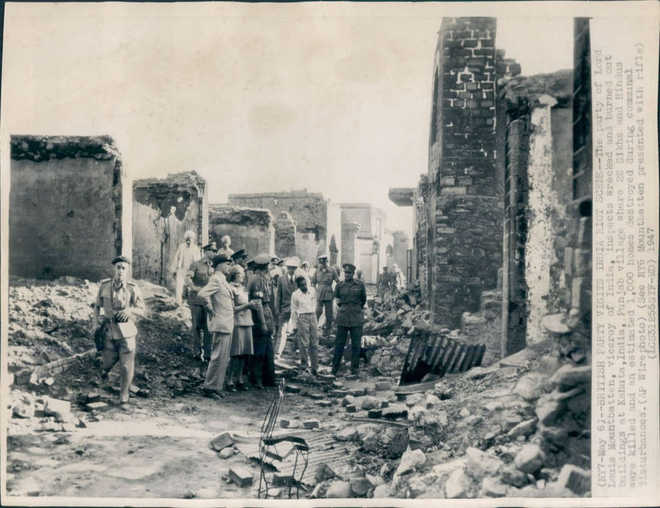
Unfair deals: Communal riots during the Partition seemed like the British government was taking revenge on Indians for demanding freedom
M Rajivlochan
In the sad story of British colonial presence in India there used to be one bright point that the apologist of British imperialism loved to bring forth. Walter Reid takes a look at it and says with the support of considerable evidence that even this one British claim, of having bequeathed democracy to Indians, is hollow. Rather, he explains in considerable detail, the British occupiers of India tried their level best to stymie the growth of democracy in India. The version of democracy, they allowed very grudgingly, was designed to bring India and Indians down.
The crux of the story that Reid lays down is the British essentially betrayed Indians, created circumstances which led to a bitter partition of the nation — the needless killing of millions and leaving the helpless at the mercy of evil persons. He mentions the widespread rapes and the hundreds of Hindu and Sikh women who killed themselves in order to escape that in Pakistan. ‘…a thousand times more horrible than anything we saw in the war’, he reports an English army officer commenting even while the authorities of the colonial state stood by the side without making any effort at intervention (Pg 255).
It was almost as if the British government was taking revenge on Indians for having demanded freedom. Even while the killings of the Partition were going on, Mountbatten reported to an audience in London that ‘only’ a hundred thousand people had died and only a small part of India had been affected.
The British government even sought out the men involved in the processes of the Partition to honour them with sundry awards. For having presided over all this mayhem, Lord Mountbatten, the then Viceroy, was made an Earl. The Commander-in-Chief of the Indian Army at the time of the Partition, Gen Auchinlek, was honourable enough, Reid tells us, to decline the peerage that the British crown thrust on him. Another person who insisted on refusing any honour being bestowed on him by the British King was General Hastings Lionel Ismay. The author writes, Ismay informed Mountbatten that he had crossed out his name from the award list for the Grand Cross in the Order of the Star of India. When the Viceroy told him that it was too late, Ismay told Mountbatten that in that case, he would have to officially decline the award.
Reid informs us that Mountbatten, projected as a great friend of India and Nehru, was made of different mettle. Mountbatten informed the government that a communal disaster was inevitable when Indians achieved self-government. Reid concludes his book by asking whether the last 30 years of British rule in India were ‘a shabby tale of procrastination, and deceit, an end that was finally cobbled together in panic and despair’.
One of the first of the English to notice the transformation in India, Reid writes, was Lord Curzon, the Viceroy who noticed early in the 20th century, that in the ‘native ….the new wine is beginning to ferment…and he is awaking to a consciousness of equality and freedom’. In the subsequent years, the English left no stone unturned to ensure that this new consciousness was overlaid by another consciousness, strictly a creation of the British, in which religion dominated all-possible factors that could create an identity for people.
In the next few years the British, with Liberals at the helm, went ahead to create separate electorates based on religion and then nurtured this division through an active policy of not interfering in communal riots. Most riots, we know from other studies of communal riots in India, died out because the rioters got bored and tired of rioting.
Such inaction on the part of the state was about all that was needed for a larger number of people to begin to believe that the only identity that really mattered in India was the religious. To further shore the separation, the state insisted on promoting communal electorates even in the 1930s. Fortunately for Indians, the ideology of nationalism kept a check on the spread of communalism. But in the end, nationalism alone could not be strong enough a force to check communalism, especially since the state insisted on promoting communal thinking in the name of the political freedom of religious groupings. But that is a side of the story that Reid has left untouched.



























